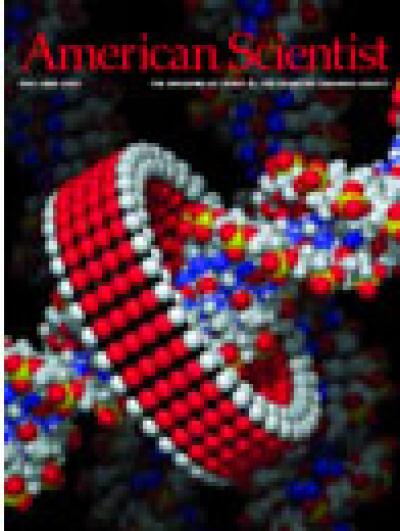Magazine
May-June 2000

May-June 2000
Volume: 88 Number: 3
Nanotechnology developed by engineers contrasts with the bionanotechnology used in living cells: DNA strands are typical of bionanotechnology, with unusual, organic shapes and complicated patterns of interaction. A hypothetical bearing, shown wrapped around a DNA strand, takes an engineering-inspired approach, with a rigid, diamond-like lattice of atoms rolled into a perfect cylinder. In "Biomolecules and Nanotechnology," David S. Goodsell discusses the ways in which solutions crafted by evolution in response to biological problems may inform nanotechnology. (Image courtesy of David S. Goodsell, Scripps Research Institute.)
In This Issue
- Art
- Astronomy
- Biology
- Chemistry
- Communications
- Computer
- Engineering
- Environment
- Evolution
- Medicine
- Physics
- Policy
- Psychology
- Technology
Biomolecules and Nanotechnology
David Goodsell
Chemistry Evolution Technology
Evolution has forced innovative solutions to biomolecular problems. Some may inform the growing field of nanotechnology
Vision and the Coding of Natural Images
David Field, Bruno Olshausen
Biology Computer Technology
The human brain may hold the secrets to the best image-compression algorithms
Reengineering the Electric Grid
Thomas Overbye
Engineering
Deregulation places new demands on one of the world's largest engineered structures—and presents new opportunities for educated consumers
Mitochondrial DNA and the Peopling of the New World
Theodore Schurr
Anthropology
Genetic variations among Native Americans provide further clues to who first populated the Americas and when they arrived
